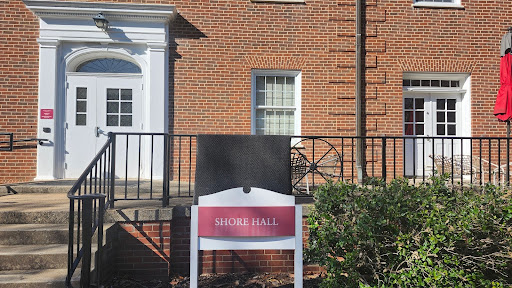From Oxford to Shanghai, to the Netherlands and Italy, from Tai Chi to woodworking to bloodstain pattern analysis, January Term has something for everyone. It is good then that it might be here to stay.
J-Term began in 2013 as a pilot program planned to expire in 2015.
However, a two-year extension of the program was proposed in May and approved by Guilford College’s then-President Kent Chabotar in June.
“It’s beginning to take a clearer and more experiential shape,” said Jack Zerbe, professor of theatre studies and study abroad director. “We are inventing structures that support it and committees that examine it, but those things are in the state of becoming. We need more time to study and enhance it in order to know how successful it ultimately can be.”
The mission of J-Term was to bring college life and real life closer together and, according to the faculty and students who’ve participated, it is succeeding.
For Assistant Dean of Career and Community Learning Alan Mueller, J-Term helps fill a gap between the traditional liberal arts curriculum and what employers want from graduates.
“In job interviews, students are rarely asked about classes they took,” said Mueller. “They are always asked about experiences that they have had. J-Term is this great place where the learning from the liberal arts can come alive in experience that translates to the job market.”
According to Guilford’s statistics, participation in J-Term courses increased from 176 to 292 students from 2013 to 2014 with the percentage of students taking four-credit courses increasing from 42 percent to 53 percent. This may be due to the introduction of a flat rate of $500 per course in 2014, as opposed to $1,400 for four credits in 2013.
From faculty to students, there is an overwhelmingly positive reaction.
“For students I’ve talked to and myself, it was a really good experience,” said sophomore José Oliva, president of Community Senate and Roads to College coordinator. “It’s great being able to focus all of your time and attention on one thing rather than being divided like the average semester.”
Professor of Chemistry Robert Whitnell agreed.
“The hope is that it will continue to live up to its promise of being a place for innovative, experiential courses and activities that could not be readily accomplished during the regular semester,” said Whitnell.
According to statistics, the majority of students rated their experiences as successful and stated that it made them feel like self-motivated, independent learners.
In addition, 94 percent of students rated that they would participate in J-Term again.
J-Term has gained significant positive momentum, and this two-year extension could provide the opportunity for students to reach their ultimate potential and independence.
“The challenge for us at Guilford College is to find a way to help our students fly on their own, for them to be more self-directed and independent, and this is a really good device to do that,” said Zerbe.











